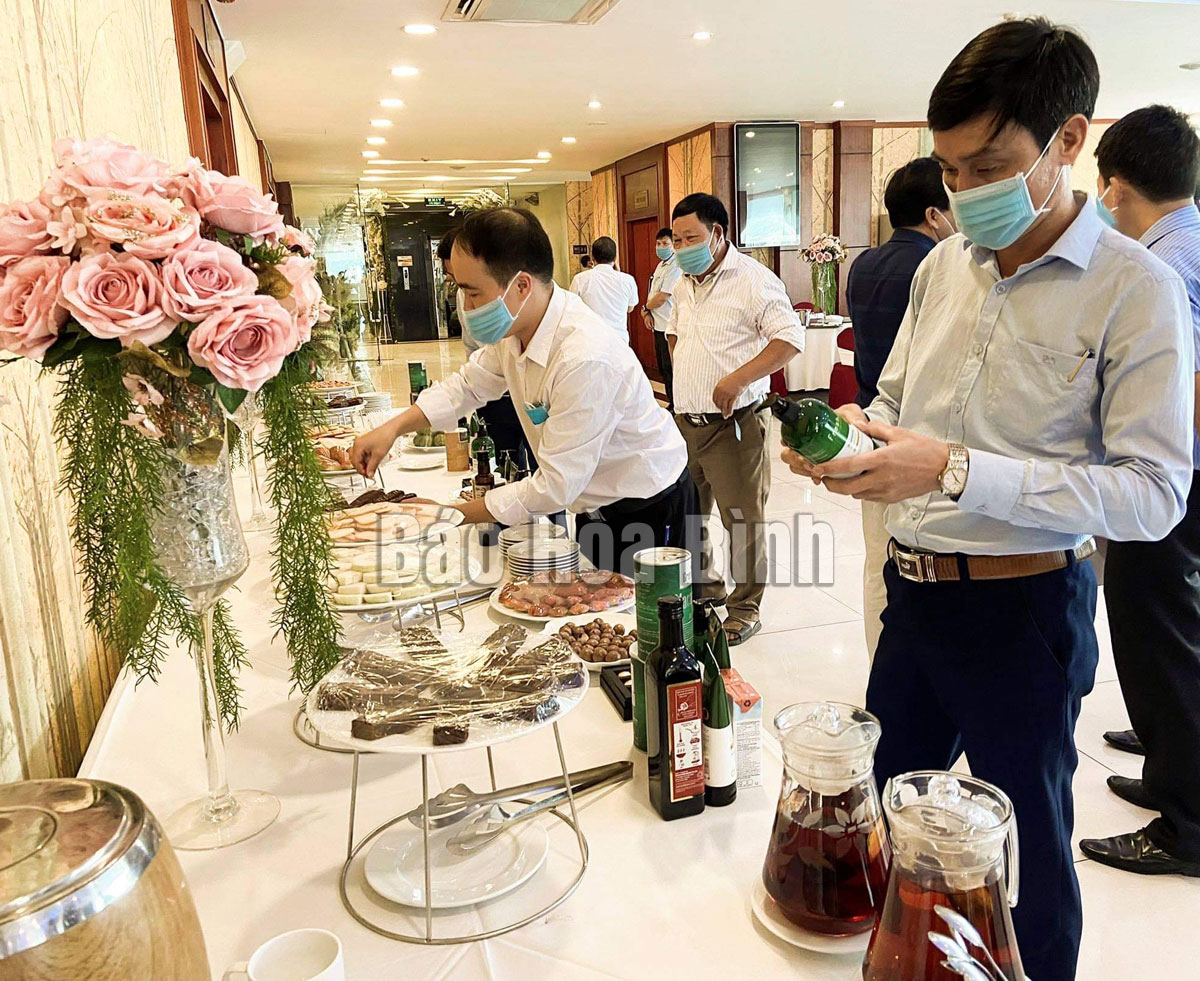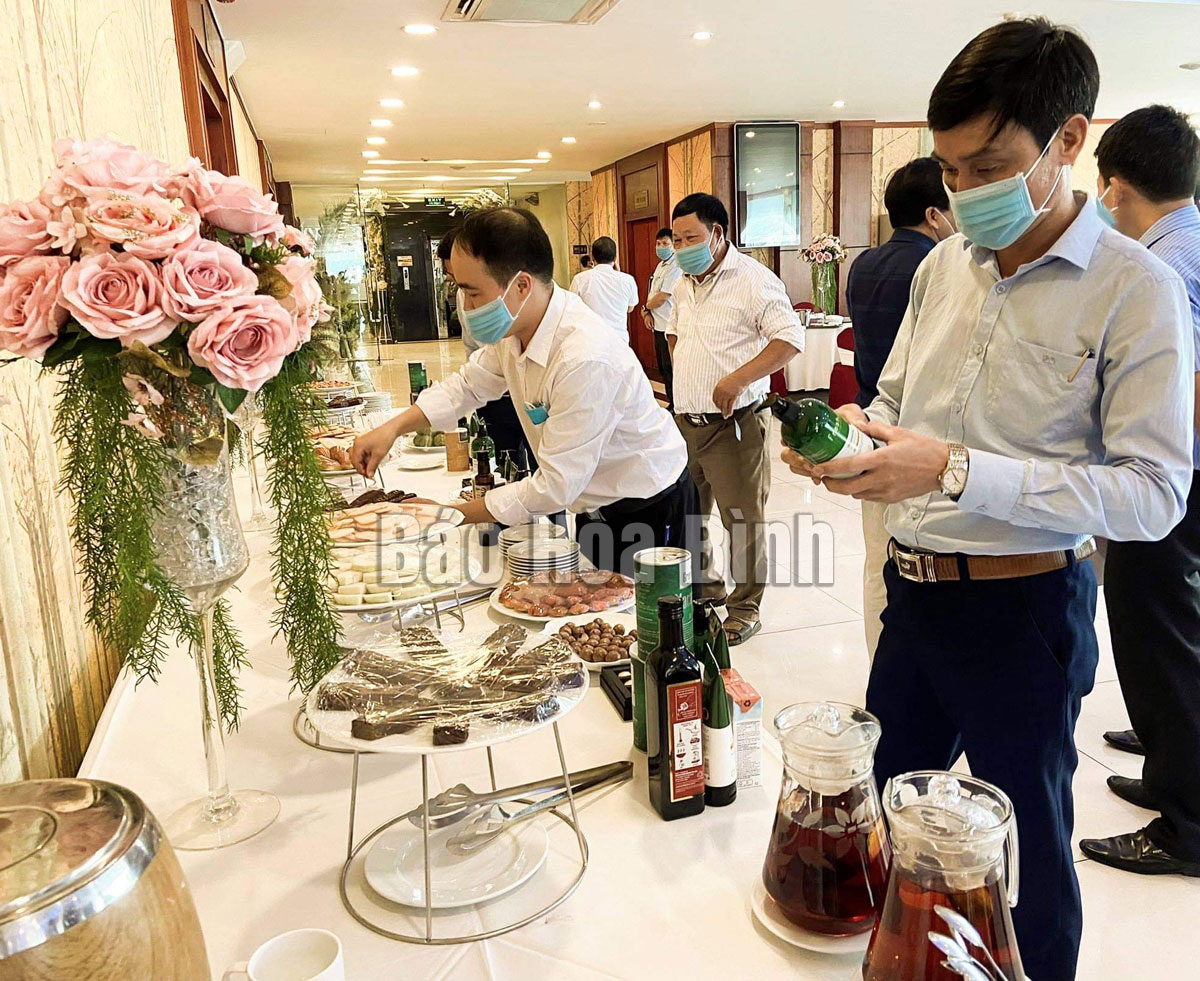
(HBO) - Macadamia trees have been grown in Hoa Binh province since 2003. To date, the province has cultivated more than 216 ha, including 14.8 ha for harvest. The rest is in the planning phase, located in the districts of Lac Thuy, Cao Phong and Lac Son.
Turning macadamia into a plant which rakes in high economic
value remains a challenge to growers, firms and local leaders.
Macadamia
nuts have high value in the global market, which are expected to help farmers
in Hoa Binh raise their income in the future. Photo taken at a symposium
assessing the situation and potential for the development of the tree in the
province.
Lac Thuy district is home to a total macadamia cultivation area of nearly 160
ha, which is viewed as the best location for growing the plant at the moment.
Trees grown in the Dong Tam resort complex in Dai Dong village, Dong Tam
commune owned by the TH Group have borne fruits for two years, with better
quality through the years.
After inspections on the development of macadamia cultivation,
the provincial People’s Committee said that the trees show resilience to pests
and diseases. At present, newly-planted macadamia trees are growing well, some
of them have produced fruits.
Meanwhile, the yield of trees that were grown for a while
remains unstable as they produce blossoms but have a low rate of fruits.
Therefore, technical solutions are required to improve the percentage.
In addition, firms and production households must consider thoroughly as high
investment will be needed to apply appropriate farming techniques.
Vice Chairman of the Hoa Binh People’s Committee Dinh Cong Su said that the
province and the Vietnam Administration of Forestry have asked the Ministry of
Agriculture and Rural Development to propose the Government amend and
supplement mechanisms and policies which support growers in the first phase of
cultivation, taxes, technologies and capital.
The People’s Committees of districts having macadamia farming must keep a close
watch on land use, prevent impulsive cultivation as well as be flexible in the
application of policies supporting stakeholders, and arrange training on
farming techniques for local people, among others./.
According to data from the Hoa Binh Provincial Party Committee, the industrial production index for the first six months of 2025 is estimated to have increased by 20% compared to the same period last year. This marks the highest year-on-year growth rate for this period since 2020.
In the first six months of 2025, Hoa Binh province’s export turnover was estimated at 1.145 billion USD, marking an 18.11% increase compared to the same period in 2024. Import turnover was estimated at $ 804 million, a 17.15% increase, which helped the province maintain a positive trade balance.
The lives of the ethnic minority farmers in Tan Lac district have gradually improved thanks to the new directions in agricultural production. This is a testament to the collective strength fostered through the professional associations and groups implemented by various levels of the district’s Farmers’ Union.
With the motto the "product quality comes first,” after nearly one year of establishment and operation, Muong village’s Clean Food Agricultural and Commercial Cooperative, located in Cau Hamlet, Hung Son Commune (Kim Boi district), has launched reputable, high-quality agricultural products to the market that are well-received by consumers. The products such as Muong village’s pork sausage, salt-cured chicken, and salt-cured pork hocks have gradually carved out a place in the market and they are on the path to obtaining the OCOP certification.
In the past, the phrase "bumper harvest, rock-bottom prices" was a familiar refrain for Vietnamese farmers engaged in fragmented, small-scale agriculture. But today, a new spirit is emerging across rural areas of Hoa Binh province - one of collaboration, organisation, and collective economic models that provide a stable foundation for production.
Maintaining growing area codes and packing facility codes in accordance with regulations is a mandatory requirement for agricultural products to be eligible for export. Recently, the Department of Agriculture and Environment of Hoa Binh province has intensified technical supervision of designated farming areas and packing facilities to safeguard the "green passport" that enables its products to access international markets.



